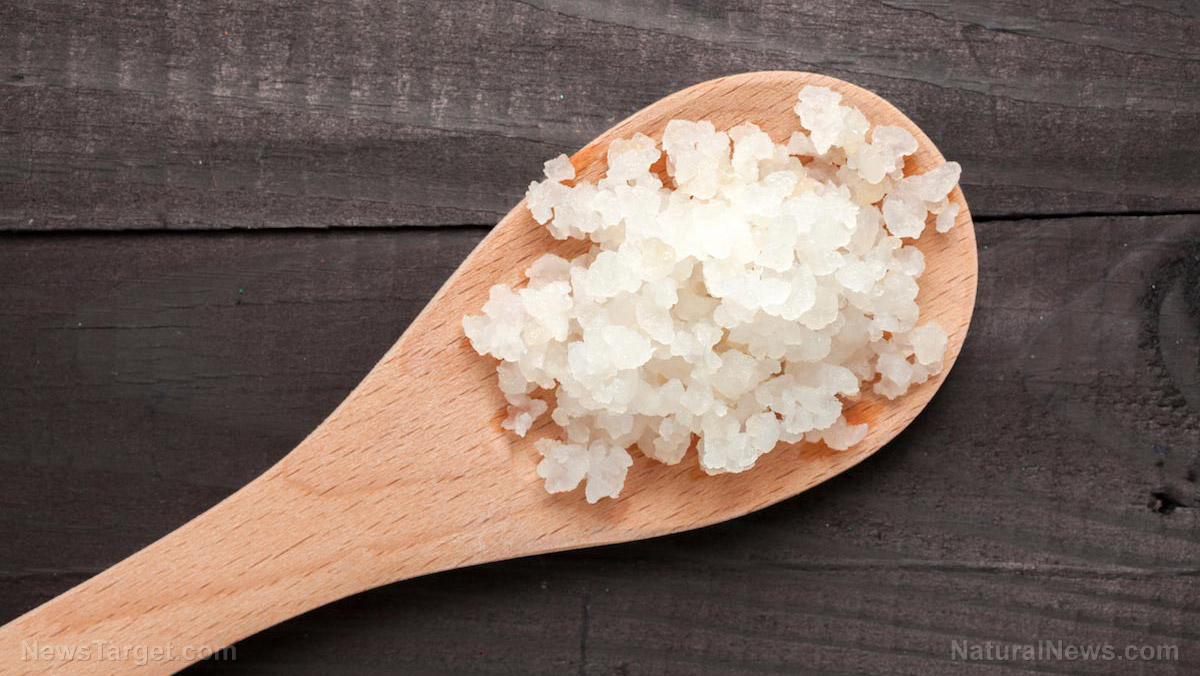The fat fix: How omega-3s are redefining heart health for a hypertensive nation
11/17/2025 / By Willow Tohi

- A new large-scale study links higher omega-3 intake to significantly lower mortality rates in adults with high blood pressure.
- Omega-3 fatty acids improve heart health by relaxing blood vessels, reducing oxidative stress and lowering triglycerides.
- Experts emphasize that not all dietary fats are harmful, with unsaturated fats from plants and fish being heart-protective.
- Saturated and trans fats, found in processed foods and animal products, should be limited to reduce cardiovascular risk.
- Achieving protective levels of omega-3s often requires intentional dietary changes, including eating fatty fish or considering high-quality supplements.
In the United States, high blood pressure has quietly become a pervasive health crisis, affecting approximately half of all adults and significantly elevating their risk for heart disease, stroke and kidney failure. With many cases undiagnosed, the long-term consequences loom large. However, emerging scientific evidence is crystallizing around a powerful dietary intervention that can manage this condition: the strategic consumption of specific fats. New research demonstrates that omega-3 fatty acids, particularly from fish and plant sources, are not just beneficial but are linked to a markedly lower risk of death in hypertensive individuals, offering a clear path to strengthening the heart against the nation’s leading killer.
Groundbreaking study links omega-3s to longer life
A significant study published in Clinical Nutrition has provided compelling data on the life-extending power of omega-3s for those with hypertension. By analyzing nearly a decade of follow-up data from 27,000 U.S. adults with high blood pressure, researchers discovered that those with higher intakes of omega-3 polyunsaturated fatty acids (N3-PUFAs) had a dramatically reduced risk of dying from any cause or from cardiovascular disease specifically. The results showed that higher total omega-3 intake reduced all-cause mortality by roughly 9%. More strikingly, individual fatty acids like alpha-linolenic acid (ALA) from plants and eicosapentaenoic acid (EPA) and docosapentaenoic acid (DPA) from fish were associated with an 11% to 27% reduction in cardiovascular mortality. This study underscores that these fats offer a potent protective effect for a population at serious risk.
The heart-healthy mechanics of omega-3s
The profound benefits observed in the study are rooted in the direct physiological actions of omega-3 fatty acids on the cardiovascular system. These fats work through several key mechanisms to combat the damage caused by high blood pressure. First, they assist blood vessel cells in releasing nitric oxide, a compound that relaxes and widens arteries, thereby reducing the damaging pressure on their walls. Second, they act as antioxidants, neutralizing free radicals and reducing oxidative stress, which otherwise impairs blood vessel function. Finally, omega-3s are well-known for their ability to lower elevated levels of triglycerides, a type of fat in the blood that is an independent risk factor for heart disease. Together, these actions create a multi-faceted defense for vascular health.
Navigating the fat landscape for optimal health
The conversation around dietary fat has evolved dramatically. The outdated notion that all fat is detrimental has been replaced by a more nuanced understanding that emphasizes the type of fat consumed. Health experts now categorize fats into a simple traffic light system for heart health:
- Trans fats (red light): Found in processed baked goods and fried foods, these artificially created fats raise bad LDL cholesterol, lower good HDL cholesterol and should be avoided entirely.
- Saturated fats (yellow light): Primarily found in animal products like fatty meats, butter and full-fat dairy, as well as tropical oils like coconut and palm oil, these should be limited. They contribute to higher plasma cholesterol levels, which the liver produces when saturated fats are consumed.
- Unsaturated fats (green light): This category includes both polyunsaturated and monounsaturated fats from plants and fish. These are the heart-healthy fats that lower LDL cholesterol and provide essential fatty acids. Monounsaturated fats, such as those in olive oil, are particularly recommended as a replacement for saturated fats, as they effectively lower LDL without negatively impacting HDL.
Closing the gap on a critical nutrient
Despite the clear benefits, a significant gap exists between recommended and actual omega-3 intake. For substantial heart-protective effects, studies suggest a daily intake of at least 1,000 milligrams of combined EPA and DHA, the omega-3s found in fatty fish. The average American, however, consumes only about one-tenth of that amount. While plant-based ALA from flaxseeds, chia seeds and walnuts is beneficial, the body’s conversion to the more potent EPA and DHA is inefficient. Therefore, achieving optimal levels often requires a conscious effort to incorporate wild-caught fatty fish like salmon and mackerel or to use high-quality, decontaminated fish oil supplements.
A heart-smart future forged by informed choices
The historical fear of dietary fat is giving way to a more sophisticated era of nutritional science, where the quality of fats is paramount. For the millions of Americans navigating the risks of hypertension, this new evidence is empowering. It shifts the focus from simply restricting calories to making intelligent substitutions—replacing a marbled steak with a filet of salmon, or cooking with olive oil instead of butter. This updated understanding, confirmed by large-scale research, positions omega-3 fatty acids not as a mere supplement, but as a foundational component of a diet designed to lower blood pressure, fortify the heart, and ultimately, extend life.
Sources for this article include:
Submit a correction >>
Tagged Under:
DHA, EPA, food cures, food is medicine, food science, Good fats, health science, heart disease, heart health, hypertension, natural cures, natural health, natural medicine, Naturopathy, nutrients, omega-3s, prevention, real investigations, remedies, research, supplements
This article may contain statements that reflect the opinion of the author
RECENT NEWS & ARTICLES
COPYRIGHT © 2017 NATURAL MEDICINE NEWS


















